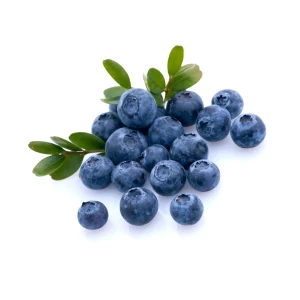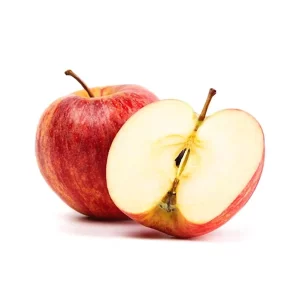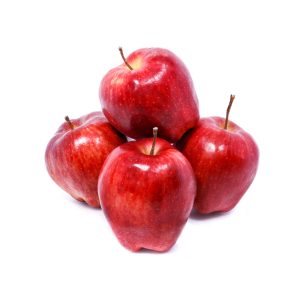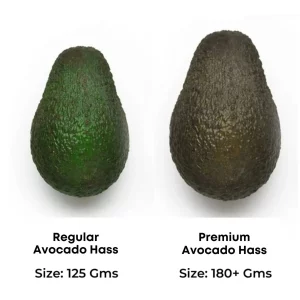Imagine biting into a small, dark fruit that bursts with sweetness and leaves a hint of tartness on your tongue. But did you know that this delicious bite comes packed with more than just flavour? Behind the glossy skin of black grapes lies a wealth of health benefits waiting to boost your body in ways you might not expect, it can help boost your heart health, improve your skin, and even enhance your mood. Sounds like a superfood, right?
Black grapes have been cultivated for over 6,000 years, particularly in Europe and Asia, where they were primarily used for wine production. In addition to being a healthy and tasty snack, black grapes are also popular in salads and juices. Recently, they have garnered attention for their potential health benefits.
As we explore the health benefits of black grapes, we’ll delve into their nutritional value and the impact they may have on managing lifestyle . We’ll also cover the best ways to consume them and when it may be wise to avoid this fruit.
Nutritional Value of Black Grapes
Black grapes are a nutrient-dense fruit, offering a wide range of vitamins and minerals that support overall health.
Nutritional Content (Per 100g of Black Grapes)
| NUTRIENTS | CONTENT |
| CALORIES | 69 kcal |
| CARBOHYDRATES | 18g |
| FIBER | 0.9g |
| SUGAR | 15.5 g |
| PROTEIN | 0.72 g |
| FATS | 0.16g |
| VITAMIN C | 10.8mg |
| VITAMINE K | 14.6µg |
| POTASSIUM | 191mg |
| CALCIUM | 13mg |
| MAGNESIUM | 5mg |
This combination of nutrients makes black grapes not only a low-calorie option but also a great source of antioxidants and vitamins, particularly vitamin C, which boosts the immune system, and vitamin K, which is crucial for blood clotting and bone health. Potassium, another key nutrient, helps regulate blood pressure and maintains proper heart function.
Health Benefits of Black Grapes
Antioxidant Powerhouse
Black grapes are loaded with antioxidants like flavonoids, resveratrol, and tannins that help protect against oxidative stress, which can lead to cell damage and ageing. Resveratrol, in particular, has been widely studied for its cardiovascular benefits and anti-inflammatory properties. Regular consumption of antioxidant-rich foods like black grapes may promote overall health and longevity.
Cardiovascular Support
Resveratrol in black grapes supports heart health by improving circulation and lowering the risk of plaque buildup in the arteries. Their high potassium content helps regulate blood pressure, while fibre aids in managing cholesterol by blocking the absorption of LDL (bad) cholesterol.
Diabetes Management
With a low glycemic index, black grapes help manage blood sugar levels by slowing down sugar absorption. Resveratrol may also improve insulin sensitivity, making it easier to regulate blood sugar, though moderation is important due to their natural sugar content.
Weight Management
Low in calories and high in water, black grapes are a great option for weight control. Their fibre content promotes a feeling of fullness, helping to curb overeating and support healthy weight management.
Potential Benefits for Thyroid Health
Though direct research on black grapes and thyroid health is limited, their antioxidants can reduce inflammation and oxidative stress, which may benefit thyroid function. Overall, the antioxidant properties make them a great addition to a healthy diet.
Anti-Aging Effects
Resveratrol and other antioxidants in black grapes help neutralise free radicals, reducing signs of aging like wrinkles and keeping skin looking youthful.
Improves Skin and Hair
Packed with vitamins and antioxidants, black grapes boost skin health by supporting collagen production, improving texture, and reducing pigmentation. They also strengthen hair follicles, promoting growth and reducing hair fall.
Protection from Sun Damage
Resveratrol offers some protection from UV rays, helping to repair skin damage caused by sun exposure and preventing premature ageing.
Boosts Memory
Resveratrol in black grapes may improve memory and cognitive function by increasing blood flow to the brain, reducing the risk of cognitive decline, and promoting mental clarity.
Helps control mood swing and headaches
If you frequently experience PMS symptoms such as mood swings and headaches, black grapes might be beneficial. Their riboflavin content is particularly helpful for managing headaches and migraines.
Promotes Eye Health
The lutein and zeaxanthin in black grapes help protect the eyes from harmful UV rays. Including black grape juice in your diet can support overall eye health and help prevent age-related vision issues.
When to Avoid Black Grapes
-
Fruit Baskets
An Apple A Day Basket (Assorted) – 4pc
₹212.00Original price was: ₹212.00.₹148.00Current price is: ₹148.00. -
Fruit Baskets
Valentine Special Basket (Assorted) – 9 pc
₹599.00Original price was: ₹599.00.₹499.00Current price is: ₹499.00. -
Berries and Grapes
Blueberry (Peru)
₹280.00Original price was: ₹280.00.₹224.00Current price is: ₹224.00. -
Exotic Fruits
Plum (China) – 6pc
₹120.00Original price was: ₹120.00.₹84.00Current price is: ₹84.00. -
Apples and Pears
Apple Royal Gala (Turkey) – 2pc
₹95.00Original price was: ₹95.00.₹67.00Current price is: ₹67.00. -
Apples and Pears
Apple Red Delicious (Turkey) – 2pc
₹117.00Original price was: ₹117.00.₹82.00Current price is: ₹82.00. -
Apples and Pears
Pear Green (South Africa) – 2pc
₹150.00Original price was: ₹150.00.₹130.00Current price is: ₹130.00. -
Exotic Fruits
Kiwi Green (Chile) – 3pc
₹152.00Original price was: ₹152.00.₹106.00Current price is: ₹106.00. -
Exotic Fruits
Avocado Hass (Tanzania) – 1pc
₹150.00Original price was: ₹150.00.₹105.00Current price is: ₹105.00.
Kidney Health
People with kidney problems or compromised kidney function may need to limit black grape consumption due to their potassium content. Excess potassium can be harmful to those with impaired kidneys, as the body may struggle to regulate potassium levels, leading to potential health complications.
Blood Sugar Sensitivities
Though black grapes have a relatively low glycemic index, they still contain natural sugars. People with blood sugar sensitivities or diabetes should consume them in moderation, as overconsumption can cause blood sugar levels to spike.
Allergy
Some individuals may be allergic to black grapes, experiencing symptoms like itching, swelling, rashes, or even breathing difficulties. Those with a known grape allergy should avoid black grapes and seek medical advice if they encounter any allergic reactions.
Gastrointestinal Issues
Black grapes are rich in fibre, which can help with digestion, but in large quantities, they might cause gastrointestinal discomfort such as bloating, gas, or diarrhoea. People with sensitive digestive systems should be cautious about overconsumption.
Pregnancy
While black grapes can be a healthy snack during pregnancy, some experts recommend limiting intake due to concerns over the resveratrol content, which in excessive amounts may potentially affect hormone levels. It is best for pregnant women to consult a healthcare provider before adding them regularly to their diet.
Best Ways to Consume Black Grapes
Black grapes are versatile and can be enjoyed in many forms. Here are some of the most popular and effective ways to consume them:
Raw Form: Eating black grapes raw is the simplest and most nutritious way to enjoy them. The skin contains a significant amount of antioxidants, so it is best to eat them with the skin on for maximum benefit.
Salads: Adding black grapes to fruit or vegetable salads provides a sweet contrast and boosts the dish\’s nutritional value.
Juice: While black grape juice retains many of the nutrients, it\’s important to avoid processed or packaged versions with added sugars. Freshly made juice is the best option.
Smoothies: Blend black grapes with other fruits and vegetables for a nutrient-packed smoothie. This method is particularly useful for people who struggle to eat whole fruits.
Desserts: Black grapes can be added to yoghurt or used as a topping for oatmeal or cereals, offering a natural sweetness without the need for added sugars.
Some myths and facts about black grapes
Myth: Black grapes can cure diabetes.
Fact : Black grapes cannot cure diabetes. While they have a low glycemic index and contain compounds that may help regulate blood sugar levels, they are not a cure. Effective management of diabetes requires a comprehensive approach including diet, exercise, and medical treatment.
Myth: Black grapes can prevent or cure cancer.
Fact: Black grapes cannot prevent or cure cancer. They contain antioxidants like resveratrol and flavonoids, which may support overall health and help reduce oxidative stress. However, cancer prevention and treatment require a multi-faceted approach including a healthy lifestyle, regular screenings, and medical intervention.
Myth: Black grapes cause constipation.
Fact: Black grapes are high in dietary fibre, which actually helps support healthy digestion and prevent constipation. However, eating them in excessive amounts may lead to temporary gastrointestinal discomfort, but in moderation, they are beneficial for digestive health.
Myth: Black grapes are not as healthy as green or red grapes.
Fact: Black grapes are just as healthy, if not more so, than green or red grapes. They are particularly rich in antioxidants like resveratrol, which provide added benefits for heart health and anti-aging. All grape varieties offer unique health benefits and are nutritious additions to the diet.
Myth: Black grapes are harmful to people with high blood pressure.
Fact: Black grapes are beneficial for people with high blood pressure due to their high potassium content, which helps regulate blood pressure. They can be a healthy part of a diet aimed at managing hypertension when consumed in moderation.
The Key Takeaways
Why not incorporate black grape juice into your daily routine to unlock its impressive health benefits? Black grapes, also known as Kale Angur, are packed with essential nutrients and antioxidants. Regularly consuming them can strengthen your immune system, boost cardiovascular health, and enhance cognitive function. Their rich antioxidant content promotes youthful skin and provides protection from sun damage, while their low-calorie, high-water content supports weight management and digestive health. Whether you enjoy them as a refreshing juice or add them to your meals, black grapes are a versatile superfood that can significantly improve your overall well-being. Adding them to your diet is a tasty and effective way to foster a healthier, more balanced lifestyle.
-
Fruit Baskets
An Apple A Day Basket (Assorted) – 4pc
₹212.00Original price was: ₹212.00.₹148.00Current price is: ₹148.00. -
Fruit Baskets
Valentine Special Basket (Assorted) – 9 pc
₹599.00Original price was: ₹599.00.₹499.00Current price is: ₹499.00. -
Berries and Grapes
Blueberry (Peru)
₹280.00Original price was: ₹280.00.₹224.00Current price is: ₹224.00. -
Exotic Fruits
Plum (China) – 6pc
₹120.00Original price was: ₹120.00.₹84.00Current price is: ₹84.00. -
Apples and Pears
Apple Royal Gala (Turkey) – 2pc
₹95.00Original price was: ₹95.00.₹67.00Current price is: ₹67.00. -
Apples and Pears
Apple Red Delicious (Turkey) – 2pc
₹117.00Original price was: ₹117.00.₹82.00Current price is: ₹82.00. -
Apples and Pears
Pear Green (South Africa) – 2pc
₹150.00Original price was: ₹150.00.₹130.00Current price is: ₹130.00. -
Exotic Fruits
Kiwi Green (Chile) – 3pc
₹152.00Original price was: ₹152.00.₹106.00Current price is: ₹106.00. -
Exotic Fruits
Avocado Hass (Tanzania) – 1pc
₹150.00Original price was: ₹150.00.₹105.00Current price is: ₹105.00.





